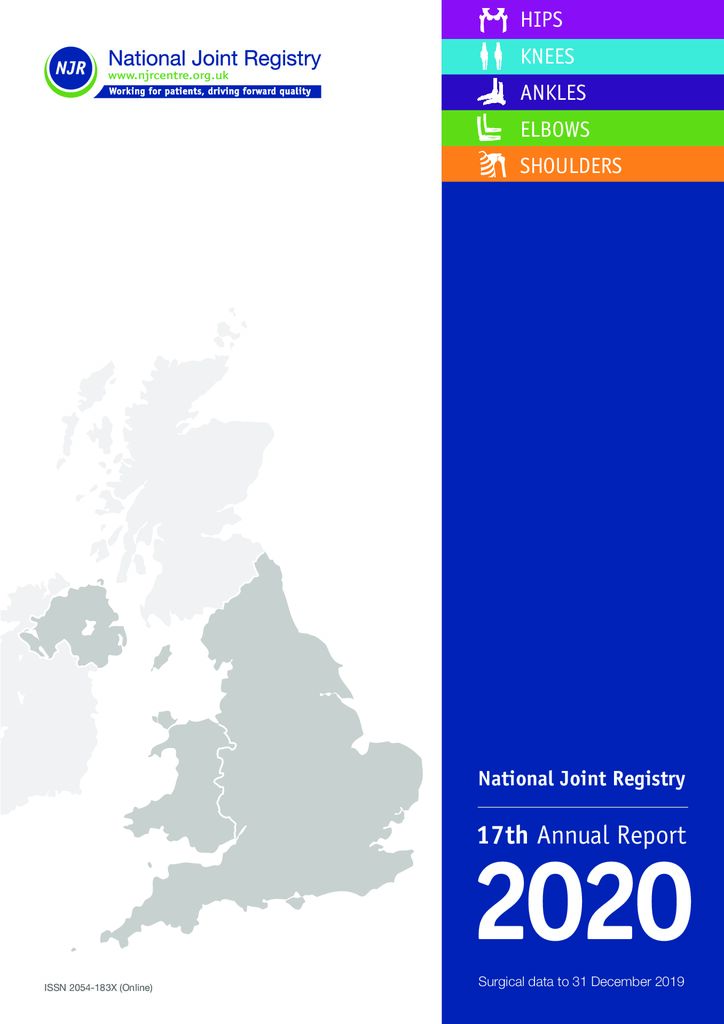National Joint Registry 17th Annual Report 2020
The National Joint Registry (NJR) collects information about hip, knee, ankle, elbow and shoulder joint replacement operations (arthroplasty) from all participating hospitals in England, Wales, Northern Ireland, the Isle of Man and the States of Guernsey. As the largest of its kind in the world, the registry has recently been described in UK Parliament as a global exemplar by the Under Secretary of State for Health and Social Care.
The purpose of the registry is to record patient information and provide data on the performance and longevity of replacement joint implants, the surgery outcomes for the hospitals where these operations are carried out and the performance of the surgeons who conduct the procedures. Each year the Editorial Board aims to make progress in reporting on our rich data resource, making data easily accessible to improve patient outcomes.
Specific additions to this year’s report have been:
- Dual mobility hip replacement
- Knee replacement and resurfacing of the patella by brand
- Survival of unicompartmental knee replacement
- Separation of cemented and uncemented prostheses at brand level
- Multicompartmental knee replacement
- Construct based knee analysis
In addition, there has been considerable work to elaborate and refine the characterisation and classification of implants so that clearer definitions of sub-groups can be now used throughout the elbow and shoulder sections.
There is considerable additional information available online and we would encourage you to explore the NJR’s dedicated annual report website at reports.njrcentre.org.uk. The website offers a helpful interactive platform for the descriptive NJR data, with supporting appendices; and the latest NJR Patient Guides.
The work of the NJR and the contribution of patients
NJR’s data collection and analysis work provides evidence to drive the continuous development and implementation of measures to ensure implant safety is always top of the agenda, to enhance patient outcomes and reduce revision rates year-on-year, to improve standards in quality of care, and to address overall cost-effectiveness in joint replacement surgery.
The NJR is very grateful to all patients who having undergone a joint replacement have provided their data over the years, which has enabled such a rich and valuable data source. The registry is also appreciative of the work of data entry staff in participating hospitals, who willingly engage in our stringent data quality award programmes to ensure our information is as accurate and thorough as possible.


